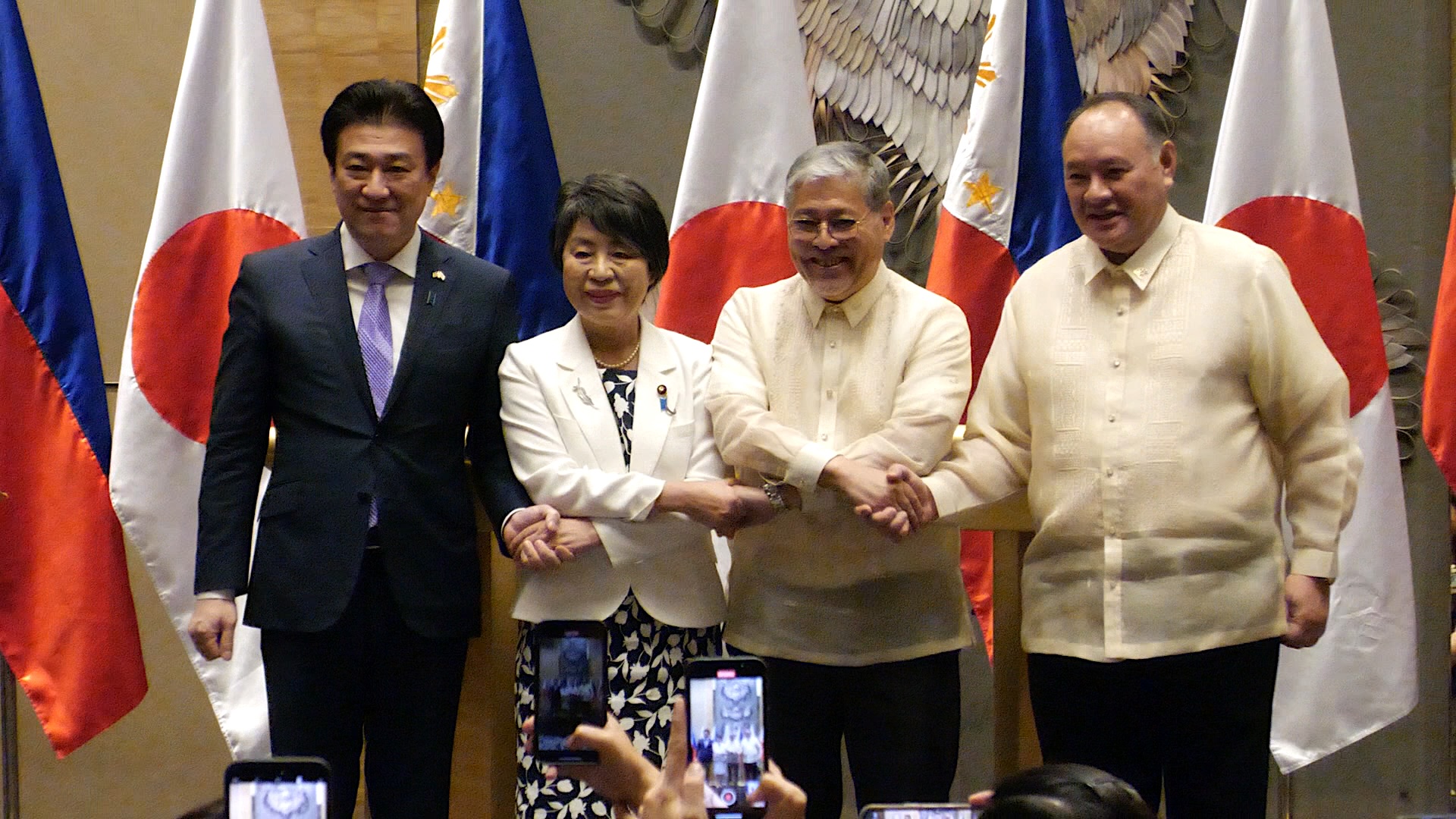Expert: Sharing common ‘threat’ led to swift inking of PH-Japan defense pact

(From left to right) Japanese Defense Minister Minoru Kihara, Japanese Foreign Minister Yoko Kamikawa, Philippines Secretary of Foreign Affairs Enrique A. Manalo, and Philippines Secretary of National Defense Gilberto C. Teodoro holding each other’s crossed hands after a press conference during the 2nd Philippines-Japan Foreign and Defense Ministerial Meeting (2+2) at Shangri-La The Fort in Taguig City on Monday, July 8, 2024. —Ryan Leagogo/INQUIRER.net
MANILA, Philippines — The swift signing of the landmark defense pact between Japan and the Philippines was made possible through late night meetings, teleconferencing and informal talks.
Department of Foreign Affairs Secretary Enrique Manalo revealed this Monday as observers noted the fast signing of the Reciprocal Access Agreement (RAA) between Manila and Tokyo.
The RAA was signed in Malacañan with Defense Secretary Gilberto Teodoro Jr. and Japanese Foreign Minister Kamikawa Yoko, as witnessed by President Ferdinand Marcos Jr.
READ: Año lauds swift signing of defense pact between Philippines, Japan
“I have to congratulate the negotiators from both sides, with the very hard work that they undertook in order to negotiate this very important agreement,” Manalo said in a press briefing held after the signing of the RAA.
“Not only did they meet to discuss or to negotiate this agreement face to face, they also had late night meetings, they also negotiated via Zoom, they also had regular contact informally,” Manalo continued. “That’s I think what contributed very much to the [early] conclusion of the agreement.”
But why the rush?
Analysts said the current geopolitical situation faced by two countries called for the fast approval of the RAA, which enables a mechanism for shared military training and operations and larger joint exercises between two countries.
Manila and Tokyo have territorial disputes with Beijing over the maritime features in the West Philippine Sea and Pinnacle Islands, respectively.
Geopolitical analyst Don McLain Gill said several things became the “catalyst” of such a move.
Gill, a lecturer at the De La Salle University’s Department of International Studies told INQUIRER.net on Monday that the bilateral move is due to “the convergence in political will; the growing and shared threat perception; and the intersection of regional goals in Southeast Asia.”
Regional security environment
“The hastiness and precipitation for the enactment of the RAA is valuable and valid due to the ambiguity and complexity of the regional security environment,” said security expert Chester Cabalza in a message to INQUIRER.net on Monday.
Cabalza also said the bilateral move shows that Manila and Tokyo share the same common “threat” and that there are trust on both sides.
“The speed of signing the agreement shows that Japan and the Philippines experience the same common threat that should be deterred,” Cabalza, president and founder of Manila-based think tank International Development and Security Cooperation, also said.
“It’s fast development of the defense pact shows that both parties trust and rely on each other,” he added.
Despite the swift signing, the Senate of the Philippines and its counterpart in Japan still needs to ratify the RAA.
But for the part of the Philippines, former Senate President Juan Miguel Zubiri said that the majority of the upper chamber would favor the RAA. —with reports from Felice Nafarrete